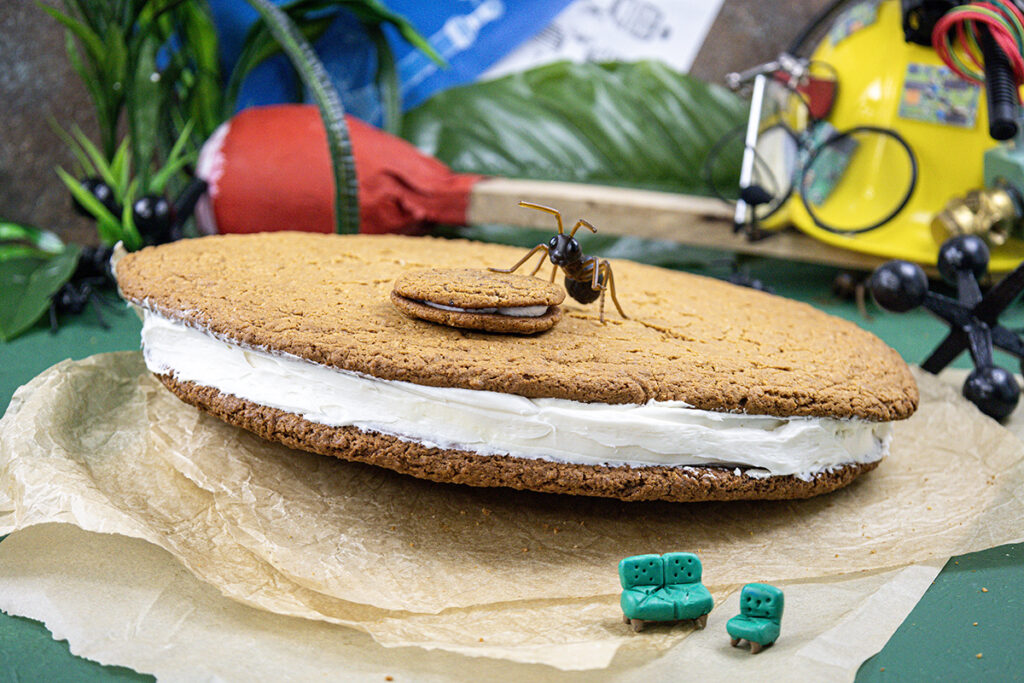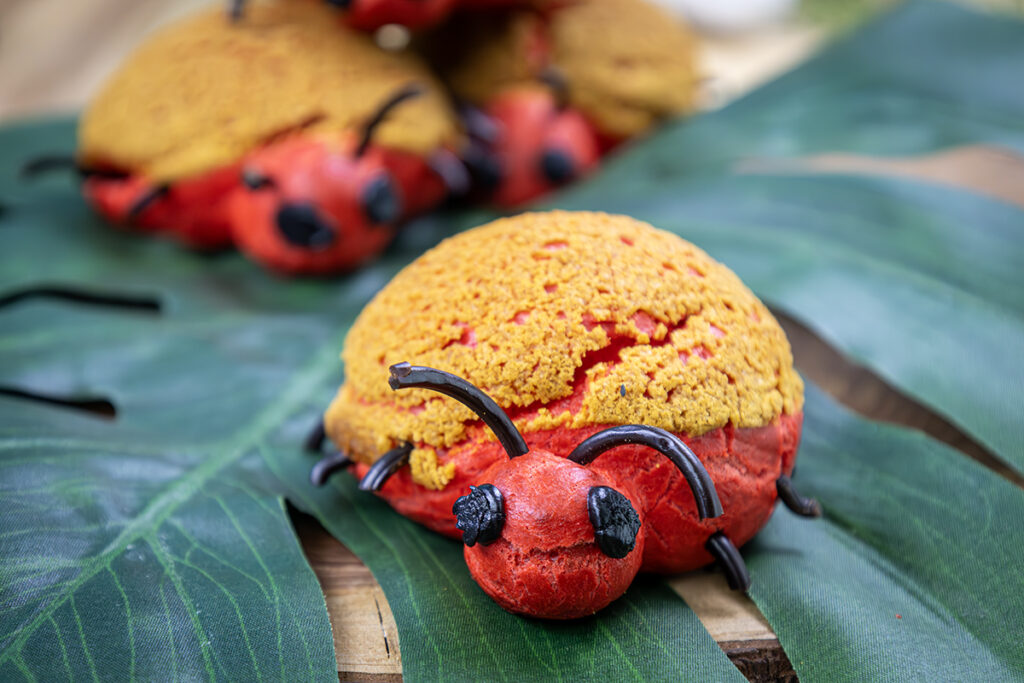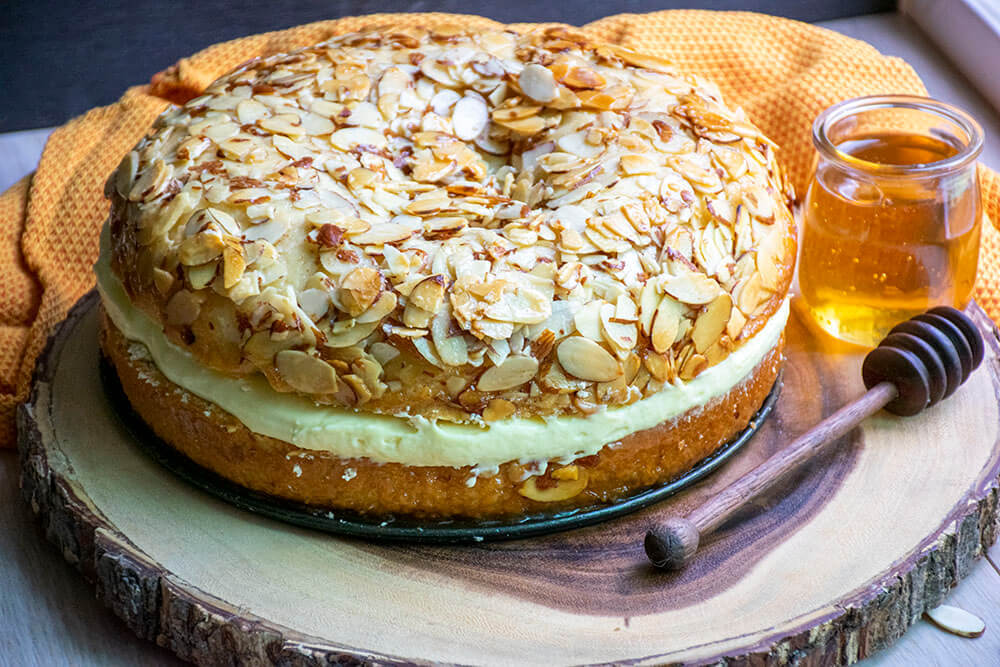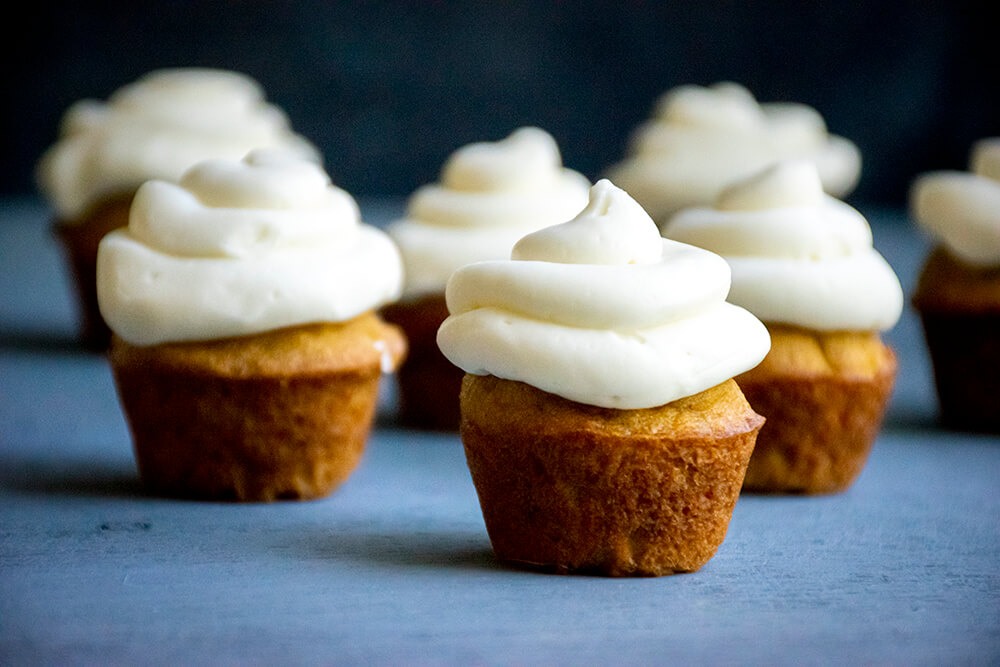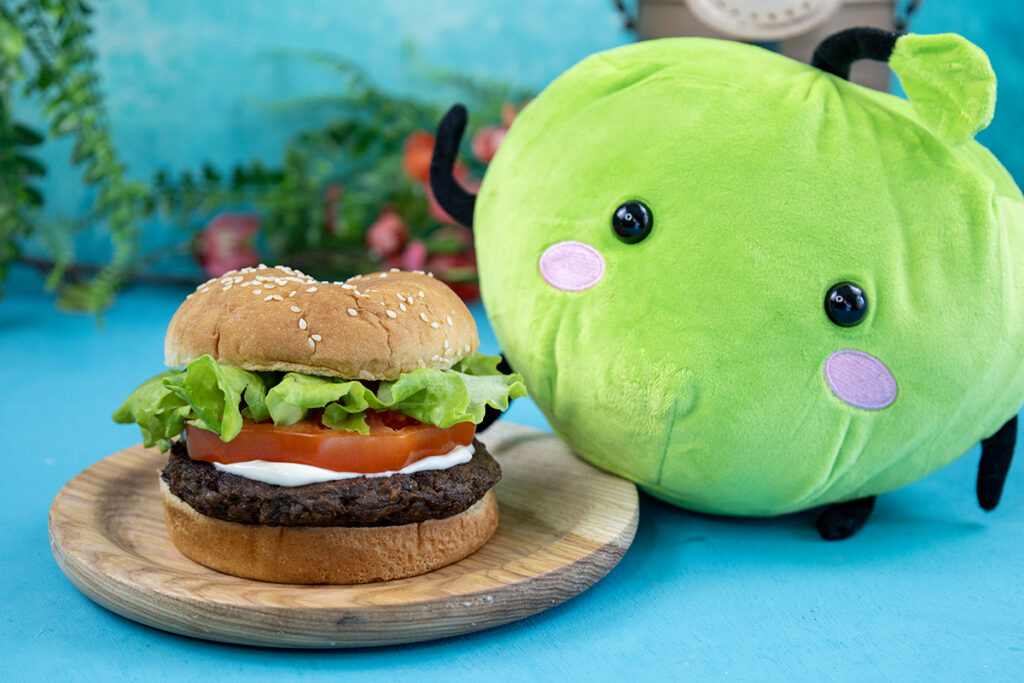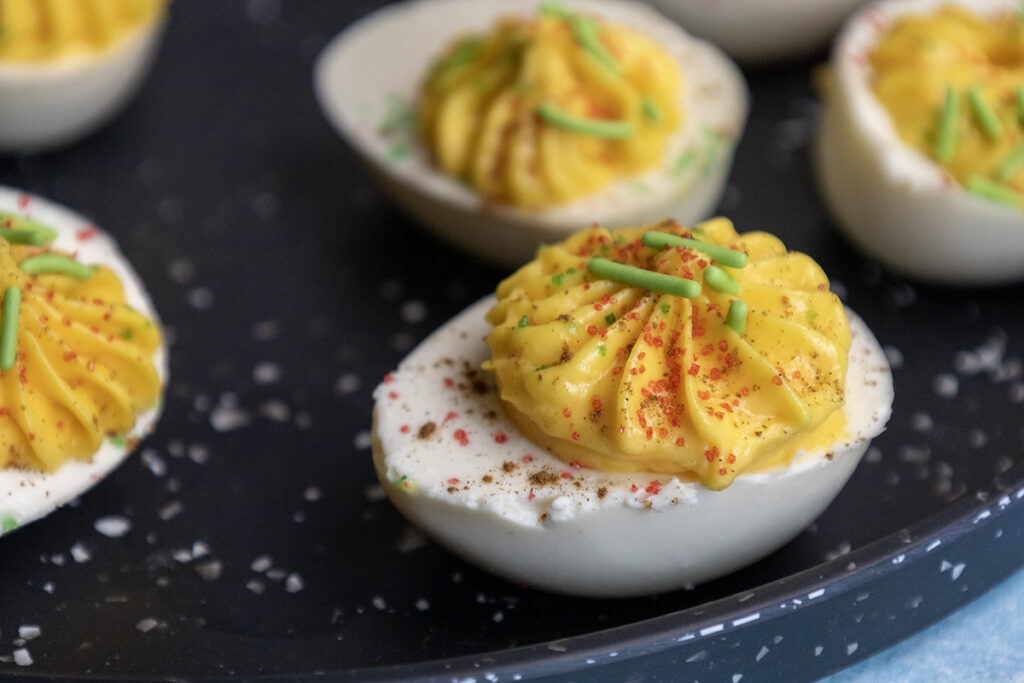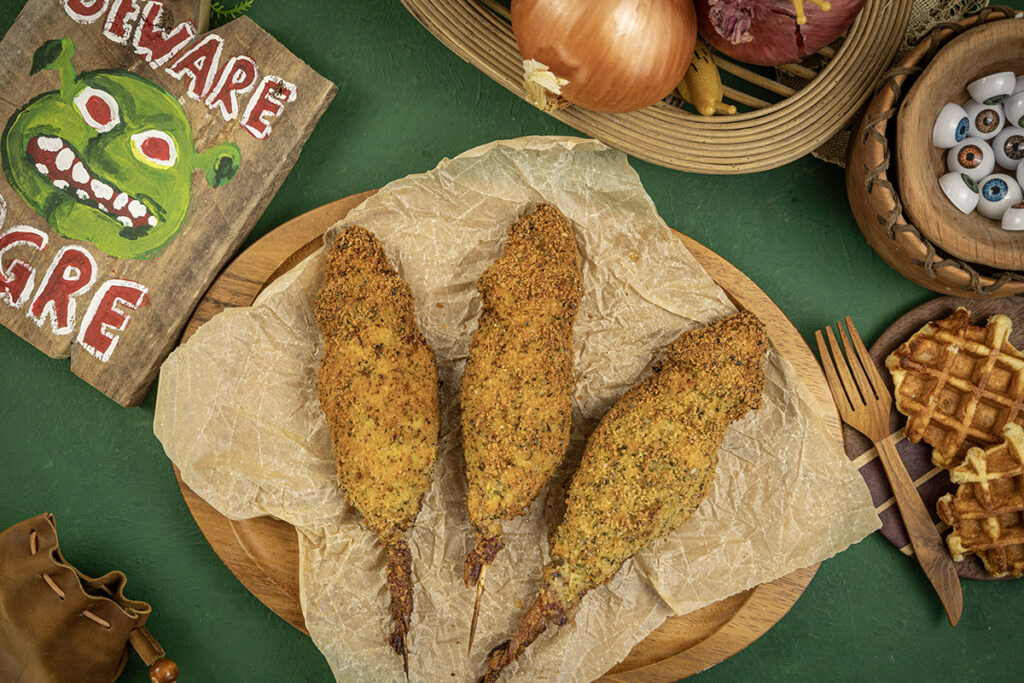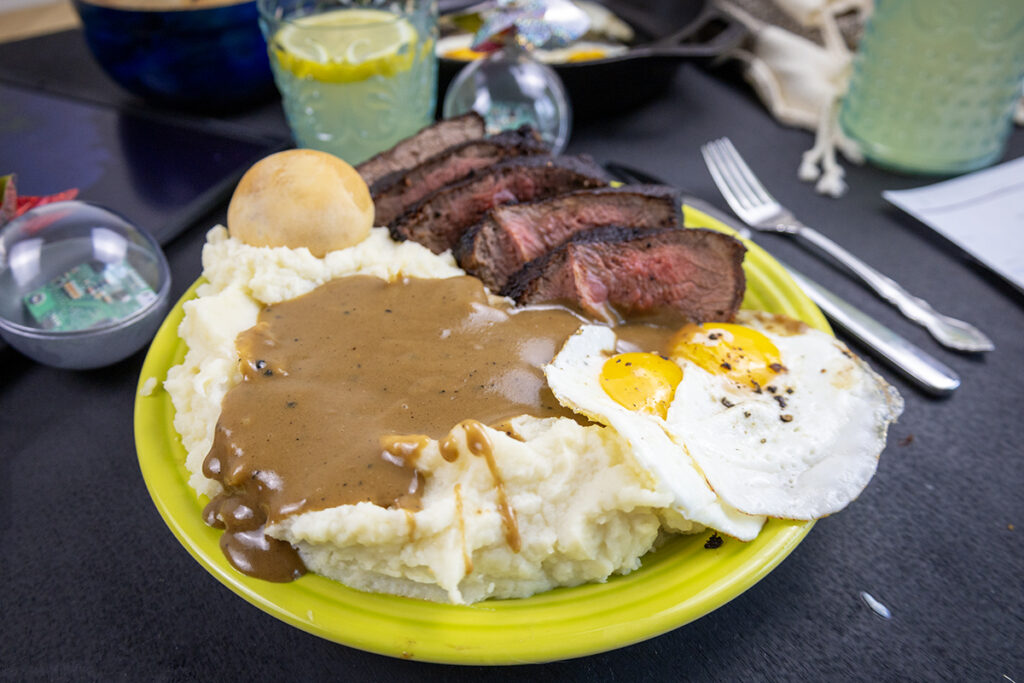Classic Scotch Eggs Recipe for Beginners
The Starving Chef is supported by Hungry People like you. When you make a purchase through an affiliate link on my site, I may earn a little bit of cash on the side (at no extra cost to you) to help keep my kitchen running. Read our disclosures here.
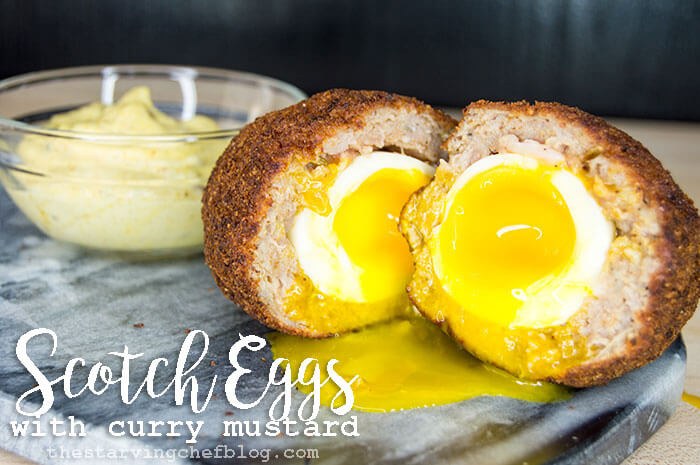
What’s Up, Hungry People
Scotch eggs—or should I say, savoury eggs—are a staple snack across the UK, finding their way into nearly every supermarket. As someone who’s never stepped foot on British soil, crafting these sausage-wrapped delights seemed like my express ticket to a British taste experience. They’re irresistibly tasty, and I’ve been hankering for them since the first bite.
Although my introduction to British cuisine was largely through the magical meals of the Harry Potter series, I embarked on a quest for the most authentic Scotch egg recipe out there. Let me tell you, Hungry People, this might just be the golden ticket.
Here’s What You Need
- Ground pork sausage: Provides the meaty exterior and main flavor base for the Scotch eggs.
- Eggs for boiling: Acts as the centerpiece, offering a creamy texture and rich flavor.
- Eggs, whisked: Used as a binding agent for the breadcrumbs to stick to the sausage.
- Parsley: Adds a fresh, herbal note to the sausage meat mixture.
- Nutmeg: Gives a warm, nutty flavor to the meat, enhancing its overall taste.
- Dry mustard: Contributes a tangy depth to the sausage meat’s seasoning.
- Flour: Coats the sausage-wrapped eggs, helping the egg wash and breadcrumbs adhere.
- Plain breadcrumbs: Creates a crispy, golden exterior when fried.
- Mayonnaise: Base for the dipping sauce, adding creaminess and richness.
- Yellow mustard: Adds tanginess and spice to the dipping sauce.
- Curry powder: Brings a warm, complex flavor to the dipping sauce.
- Whole grain mustard: Offers texture and a robust, tangy taste to the dipping sauce.
- Vegetable oil: Used for frying, it crisps the exterior to a perfect golden brown.
- Salt and pepper: Seasonings that enhance the overall flavor of the Scotch eggs and dipping sauce.
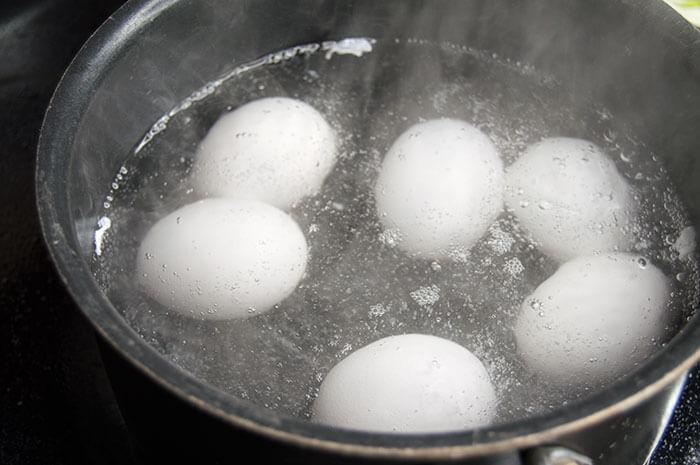
Let’s Cook!
First off, let’s talk eggs. The goal here is a soft boil, aiming for a 5-7 minute cook time. This leaves the center just the right amount of runny—think of it as poaching them right in their shells. But these little guys can be delicate, so chilling them in an ice bath post-boil is crucial to prevent any further cooking while you get the meat ready.
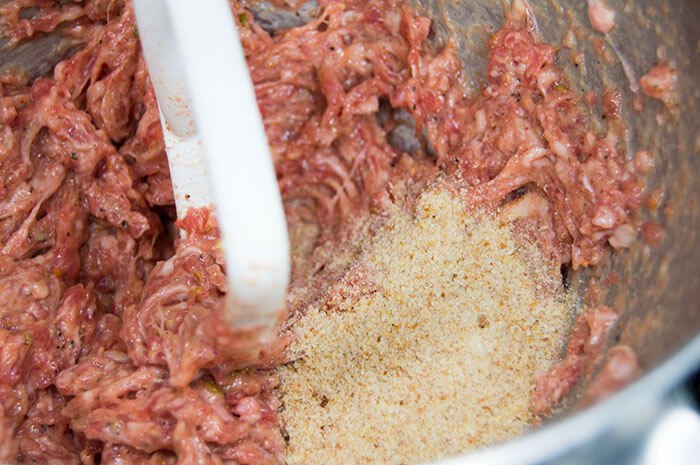
Now, for the exterior. A mix of ground pork and breadcrumbs, seasoned to perfection, creates that iconic Scotch egg coating. In a pinch, I opted for ground Italian sausage, a slight twist on tradition due to the elusive nature of plain ground pork in my local stores. But honestly, it worked out pretty fabulously.
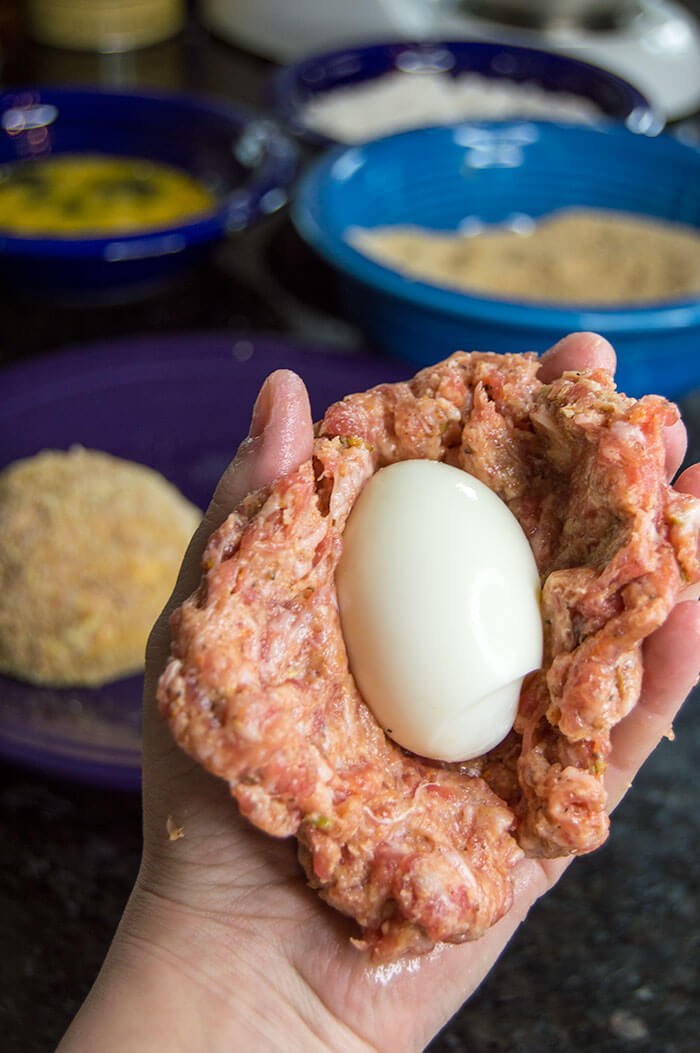
Peeling the eggs was a bit of a tightrope walk. Aim for a 5-minute boil for that extra runny yolk, but be prepared for a delicate operation. I had a few casualties in the process, but overall, they managed to survive for the next stage.
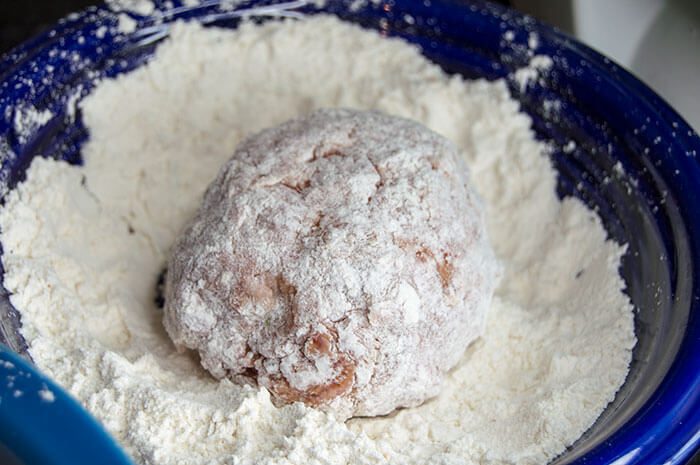
Next up, wrap those fragile eggs in your meat mixture, then give them a flour bath followed by a seasoned breadcrumb roll. This ensures they’re fully dressed for their hot oil debut.
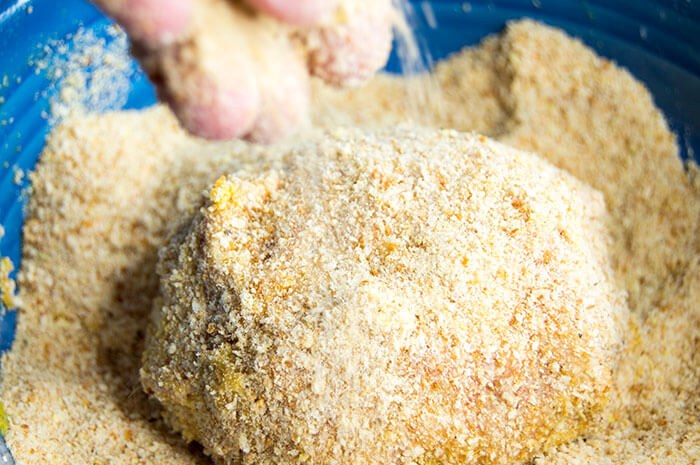
Frying them at 350°F until they reach a tempting golden brown is the final cooking step. Then, it’s all about patience as they cool down to a just-right eating temperature.
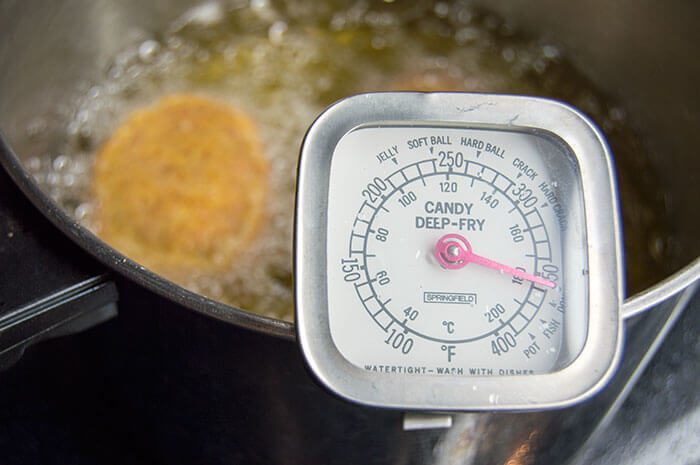
While waiting, I conjured up a simple yet tasty curry mustard dip, perfect for elevating the entire experience.
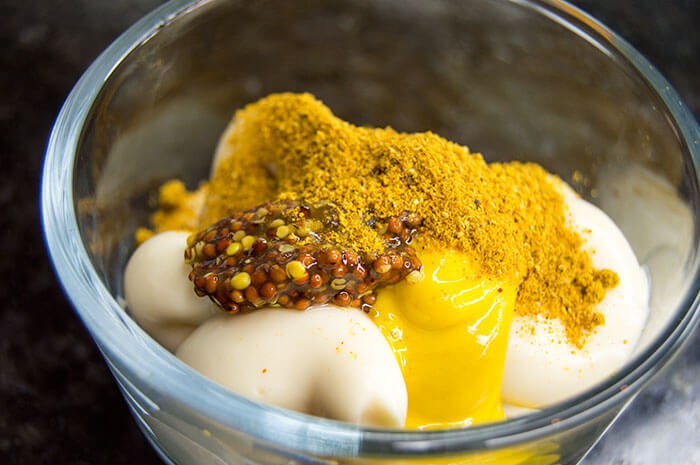
Mastering Scotch Eggs: Tips and Tricks
- Choosing the right sausage: Opt for high-quality ground pork sausage for the best flavor. If using sausage with casings, remove them before mixing with other ingredients.
- Achieving the perfect boiled egg: Aim for a soft to slightly runny yolk for that classic Scotch egg experience. Boiling for exactly 6 minutes before placing in an ice bath usually does the trick.
- Preventing the meat from sticking: If you find the sausage meat sticking to your hands while wrapping the eggs, dampen your hands with a bit of water or oil.
- Ensuring a crisp coating: Double-check that the Scotch eggs are completely covered in breadcrumbs before frying. Any gaps can cause the sausage to burst open in the hot oil.
- Frying to perfection: Maintain the oil temperature at 350°F for even cooking. Too hot, and the outside burns before the inside cooks; too cool, and the Scotch eggs can become greasy.
- Letting them rest: Allow the fried Scotch eggs to cool on a paper towel for a few minutes. This not only makes them easier to handle but also helps the exterior stay crispy.
- Customizing the dipping sauce: Feel free to adjust the amounts of mayonnaise, mustard, and curry powder in the dipping sauce to suit your taste. Adding a little honey or maple syrup can introduce a sweet note.
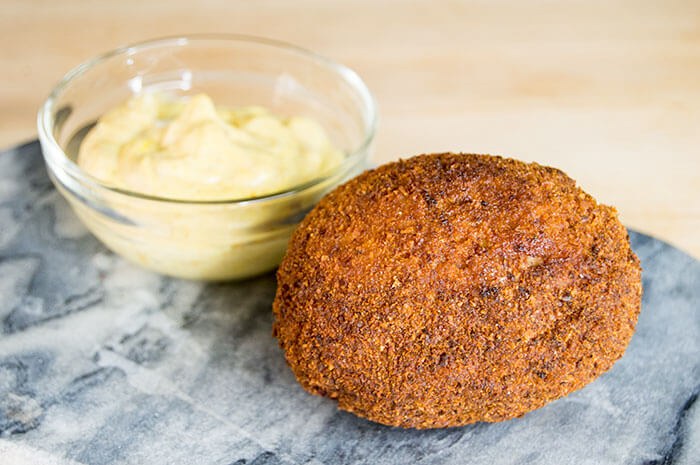
Now, I’ll be honest. The initial appearance might not win any beauty contests. But slicing into a Scotch egg reveals a yolk that’s nothing short of spectacular. It’s an experience—a flavour adventure, if you will—that proves the Brits are onto something truly special.
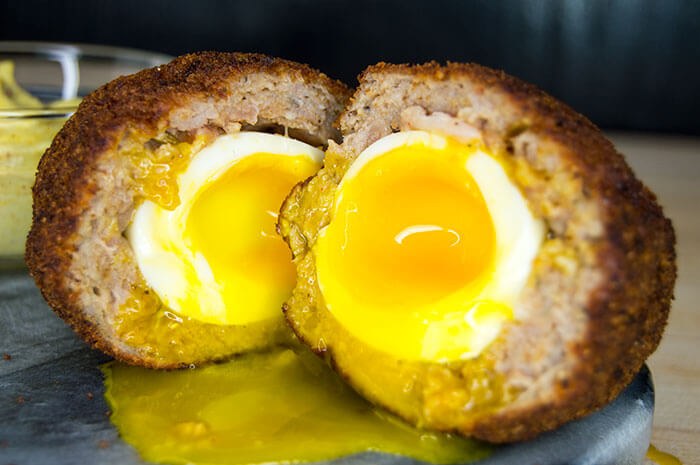
Wrapping things up, Hungry People, venturing into the realm of Scotch eggs has been quite the escapade. Whether you’re a seasoned chef or just getting your feet wet in the kitchen, these little bundles of joy are a straightforward way to bring a bit of British flair to your dining table. They might look a bit daunting at first glance, but trust me, the payoff is well worth it.
And hey, if you end up with a kitchen mess or a few egg casualties along the way, it’s all part of the learning curve, right? Remember, it’s not just about the destination; it’s about the tasty adventures we embark on in our kitchens. So, next time you’re in the mood for something uniquely satisfying, give this recipe a whirl. Cheers to your culinary success!
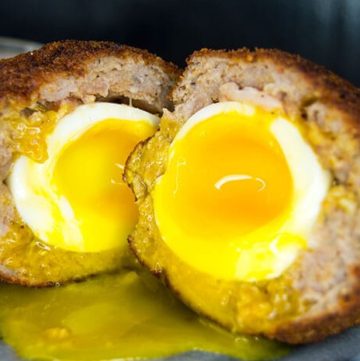
How to Make Scotch Eggs at Home
Ingredients
- 16 oz ground pork sausage
- 4 eggs for boiling
- 2 eggs whisked
- 1 tablespoon parsley
- 1 teaspoon nutmeg
- 1 teaspoon dry mustard
- 1 cup flour
- 1 cup plain bread crumbs divided into 1/2 cups
- ¼ cup mayonnaise
- ¼ cup yellow mustard
- 3 tablespoon curry powder
- 1 teaspoon whole grain mustard
- 2 cups vegetable oil for frying
- salt & pepper to taste
Instructions
- Fill a large pot or deep fryer with 2-3 inches of oil and heat to 350°F. While the oil is heating, whisk two eggs in a bowl. In a separate pot, bring water to a boil. Boil four eggs for 5-7 minutes for a soft center, or 8-10 minutes for a hard center. Remove from boiling water and place in an ice bath. Lightly crack the shells to make peeling easier.
- In a stand mixer, mix together the sausage, half of the bread crumbs (1/2 cup), nutmeg, parsley, and dry mustard. Divide the meat into four even-sized portions.
- Carefully peel the boiled eggs. Take one portion of the sausage mixture and flatten it into a thin patty. Place a peeled egg in the center and wrap the meat around the egg, ensuring it is fully encased. Repeat with the remaining eggs and meat.
- Put the flour in one bowl and the remaining bread crumbs (1/2 cup) in another. Season both with salt and pepper. Roll the sausage-wrapped eggs in flour until completely covered, then dip in the whisked eggs, and finally coat thoroughly in the bread crumbs.
- Transfer the eggs to the hot oil. Fry for 8-15 minutes, or until the sausage is dark brown and cooked through. Use a slotted spoon to remove the Scotch eggs from the oil and place them on a paper towel-lined plate. Let cool for five minutes.
- In a small bowl, whisk together mayonnaise, yellow mustard, curry powder, and whole grain mustard. Serve this dipping sauce alongside the hot Scotch eggs.



























